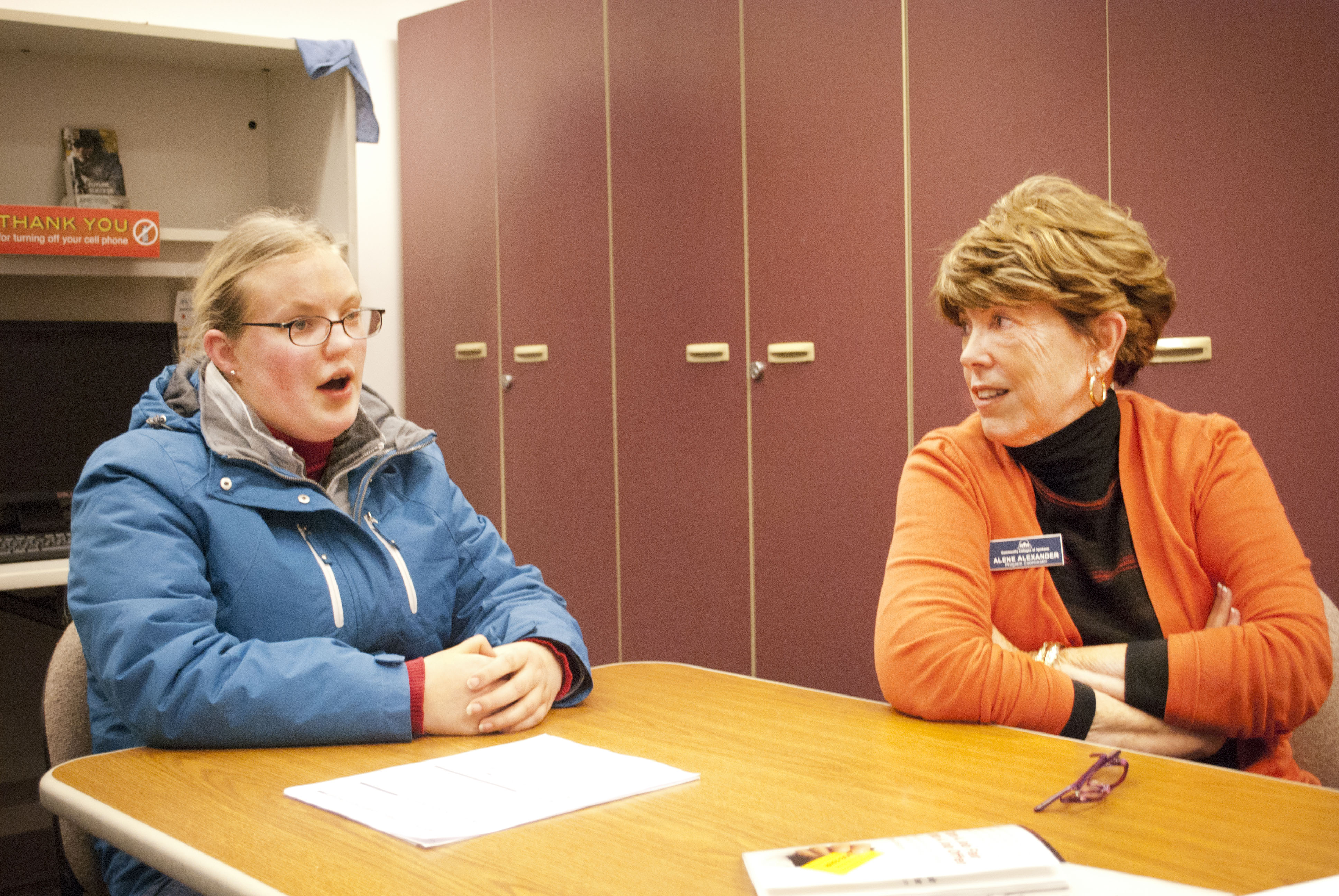Passport to College, a program built to support foster care alumni in college offers students on-cam- pus help to beat the statistics. The definition of ‘foster care alumni’ is any adult who has spent time in an out-of-home placement as a child or a youth (http://www.fostercare-alumni.org).
Passport to College is a men- torship program built to provide means of support for foster care youth in Washington. The program is available at all colleges in the state and supported financially by donations from Safetynet, the State, and local donors. Students who have been in foster care for one or more years are able to apply for three grants and financial aid. At SFCC, 36 students are currently ac- tive in the program.
“40 percent of foster care youth try to go to college and only 1% graduate,” said Alene Alexander, Program Coordinator of Passport to College at SFCC. “That is the goal- to change that number.”
Passport to College offers sup- port that includes homework help, reminders for school deadlines, preparing for tests, standardized testing help, and resources for housing, food, and life necessities.
“It is not enough to give them money, they need support,” said Alexander. “These young adults do not have parents, they have no one. It’s support in all different forms.”
Students who sign up with the program often have very little and can even be homeless or have no access to supplies or immediate life needs. Passport to College also helps with immediate needs that will affect the student’s health and/ or safety.
“I went from nothing to every- thing,” said Jaymee Wright, a new participant in Passport to College. “This program knew how to get me what I needed, and how to get it done fast.”
Beyond school deadlines, the vol- unteers at Passport to College assist students in finding work study jobs. Coordinators and volunteers also offer advice to those searching for work or to those who need assistance in their life outside of school.
“They help me be successful in school,” said Jessica Newberg, SFCC student, participant and mentor for the program. “And they helped me get two work study jobs. There is a lot of support.”
The students who take part in Passport to College find commu- nity in the relationships they build through the program. The commu-
nity builds support and encourage- ment for each student to con- tinue working towards the goal of graduation. Mentoring spans from volunteer to student and then from student to student.
“I can’t believe how many times I’ve been told ‘You can’t do it,’” said Newberg. “Seeing each other on campus means having other people to support you. We are like a family, a real big one”
Students often find the program by word of mouth (students telling students), the school application which asks if an applicator has been in foster care, or by the coun- seling department referring them to the program.
“My favorite part of this job is knowing the teens,” said Alene Alexander. “It’s an honor. Most of these kids have a story. Some have lived in 25 plus homes. All have dreams, ambition and they are resilient.”
Passport to College has had several successful students. Jessica Newberg will be graduating from SFCC and attending Seattle Pacific University. Ben Anguiano wants to be an RN; Michael Gonzalez, a social worker; Candace a teacher.
“That’s why I become a mentor,” said Newberg. “I went from noth- ing to something. I believe it tells other foster care youth that you can make it through. I beat the statistic. There are still bumps in the road, but you can do it.”
